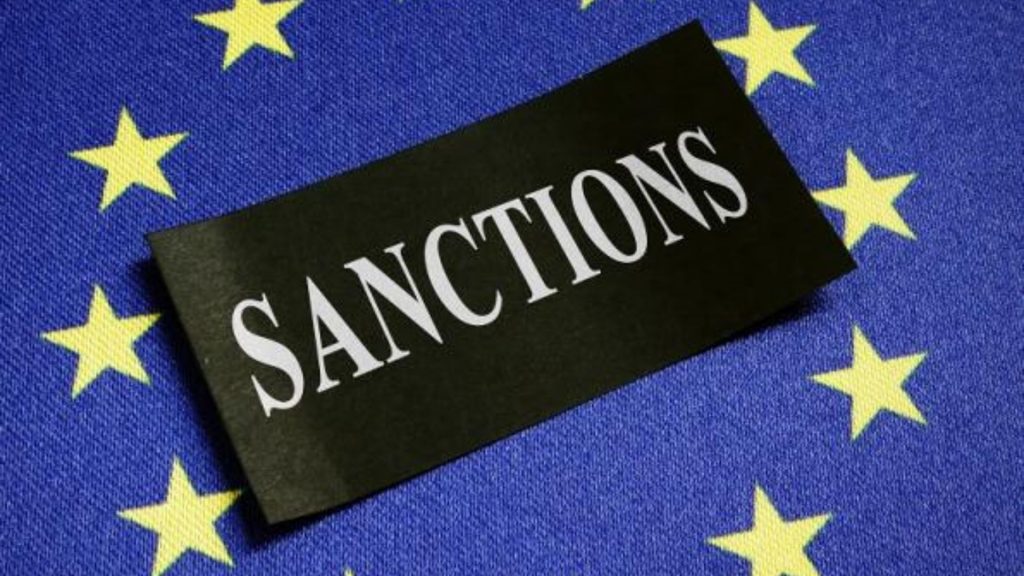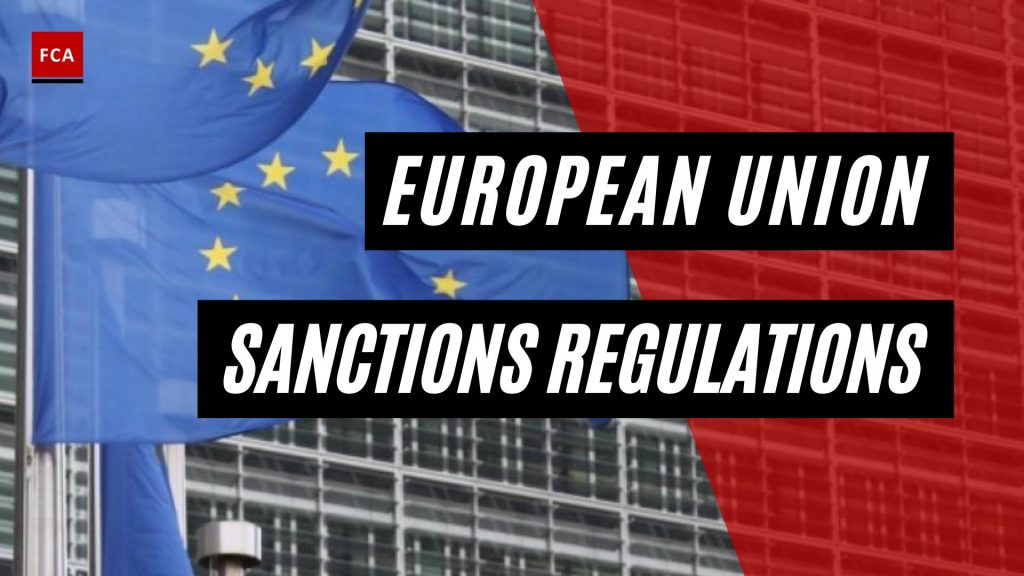European union sanctions regulations. EU sanctions regulation is highly complex and, to cover it all, it would possibly require an entire course on it. The purpose of this lesson rather is to give you a very basic overview of sanctions regulation in the European Union.

European Union Sanctions Regulations
Now, first of all, sanctions are not called sanctioned in the European Union. They are called restrictive measures there. The EU’s restrictive measures are prepared by the European External Action Service and agreed upon by the Council of the European Union.
According to official sources, such restricted measure is adopted to “bring about a change in policy or conduct of those targeted, with a view to promoting the objectives of the [EU’s] Common Foreign and Security Policy.” According to the EU’s guidelines on best practices, the EU aims to adopt sanctions in a manner that conforms to international law and is especially concerned with sanctions that may negatively impact human rights, fundamental freedoms, and the general well-being of persons.
The EU adopts sanctions through decisions made by the Common Foreign and Security Policy. Prior to going to the policy, the proposed sanction is examined and discussed by a regional preparatory body. Next, it works its way through the Working Party of Foreign Relations Counsellors, or RELEX, the Political and Security Committee, or PSC, and the Committee of Permanent Representatives, or COREPER II. After making it that far, the resolution must be unanimously adopted by the CFSP. Upon being published in the Official Journal of the European Union, the sanction goes into effect.
There is a wide range of possible restrictive measures which could be imposed by the EU. When deciding on restrictive measures, it is important to consider which measure or package of measures is most appropriate in order to promote the desired outcome. They may include diplomatic sanctions, suspension of cooperation with a third country; boycotts of sport or cultural events; trade sanctions; financial sanctions; flight bans, and restrictions on admission.
Economic Significance Of The EU
In view of the economic significance of the EU, the application of economic and financial sanctions can be a powerful tool. At the same time, broad economic or financial restrictions may result in unduly high economic and humanitarian costs. Economic and financial restrictive measures, including targeted financial sanctions, have to be applied by all persons and entities doing business in the EU, including nationals of non-EU countries, and also by EU nationals and entities incorporated or constituted under the law of an EU Member States when doing business outside the EU.
This is why the EU has often imposed targeted financial sanctions, which can be designed to target specific persons, groups, and entities responsible for the objectionable policies or behavior. Such sanctions usually comprise both an obligation to freeze all funds and economic resources of the targeted persons and entities and a prohibition on making funds or economic resources available directly or indirectly to or for the benefit of these persons and entities.
Final Thoughts
As a matter of policy, the EU implements all sanctions enacted by the UN Security Council. The EU does not need to pass any additional resolutions or transpose UN resolutions into EU law. However, as with its own EU sanctions, Member States of the EU are required to adopt their own legislation for monitoring and enforcing sanctions, such as penalties for violations.








